Question
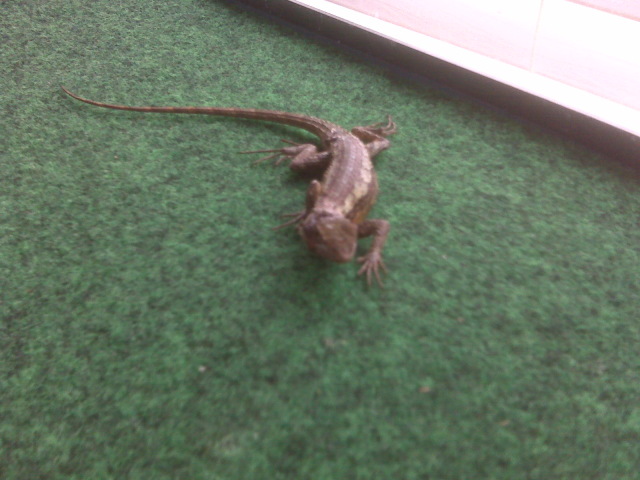 texas lizard
texas lizard
My son found an injured lizard. After looking online at pics we think it is either a Texas Spiny Lizard or Texas Tree Lizard (has blue markings on belly). It has a gash on top of his head/neck area. It seems to be moving well so no broken bones. My sons goal is to keep it captive until it heals - afraid it is slow moving and will get eaten by other critters. Is there any home remedies or other store bought items that can or should be applied to a cut on a lizard? I won't spend the money to take it to a vet -sorry but just cannot afford something like that. But would like to help it.
Any idea if these lizards do well in captivity? What do they eat? How big do they get? We have a set up for a bearded dragon, so have all the "stuff" needed to make a lizard cozy.
Any suggestions fore its care would be appreciated. Thanks.
AnswerDawn,
I apologize for not getting back with you sooner. It is quite an adorable creature you have found. I am glad you are caring for him. For cuts and scrapes, I generally use betadine and some sort of antibiotic cream. Lizards generally heal well and are able to overcome injury quite well.
I would assume this lizard should do alright in captivity, however, I think it is important to return him to the wild as soon as he improves so as not to dull his survival instincts or crush his free spirit.
This lizard needs to have similar care as the bearded dragon with a primary diet of insects and UVB lighting in captivity. Diurnal lizards (awake during the day) need UVB exposure to maintain proper calcium levels or he could become malnourished and develop metabolic bone disease issues. It would be beneficial to study up on the diet and care needs of the bearded dragon as there is not much information about keeping these lizards in captivity. He is probably not used to the standard insect diet pet stores promote...he might have a much more diverse diet in the wild, so he may not like being restricted to just crickets or just worms, etc.
Here is a good site for a refresher on bearded dragon care. I would mimic the diet/lighting/temperature needs of the bearded dragon if you plan to keep him in captivity for a short while. Like I said, I would recommend returning him to the wild as soon as he appears to be better. Keep in mind, these lizards are slow by nature, so that may not improve a whole lot.
http://www.anapsid.org/bearded.html
Thank you and please follow up with any further questions.
Sara J Gwerder
President
Raptor Rescue Iguana Sanctuary
Shreveport, LA
www.RaptorRescue.org
Good Diet + UVB Radiation + Proper Temperatures + Set Daily Schedule = Healthy + Happy Reptile


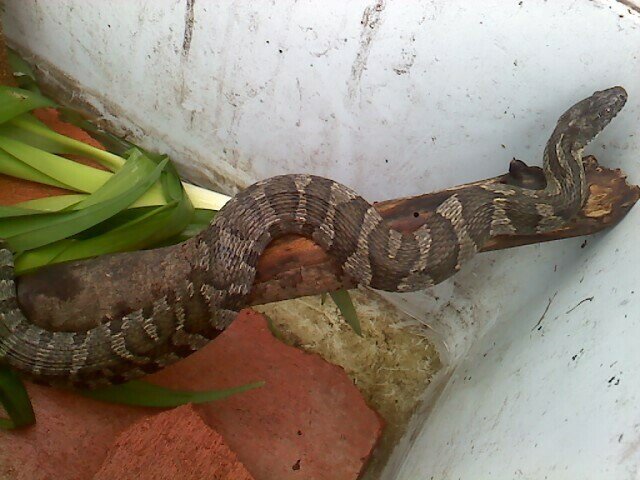 Unknown Snake.
QuestionSnake
QUESTION: I found this snake near
Unknown Snake.
QuestionSnake
QUESTION: I found this snake near
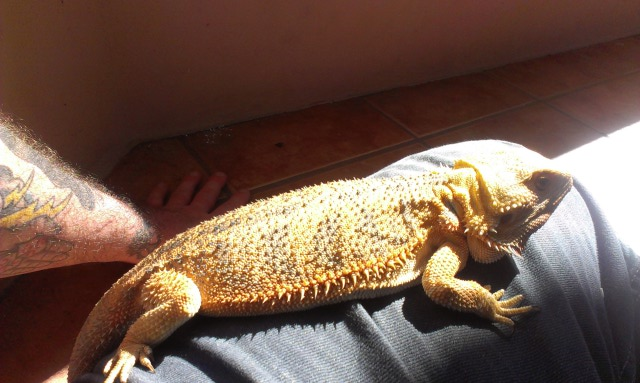 Bearded Dragon - health/appetite
QuestionQUESTION: I have a 3 year old bearded dragon. S
Bearded Dragon - health/appetite
QuestionQUESTION: I have a 3 year old bearded dragon. S
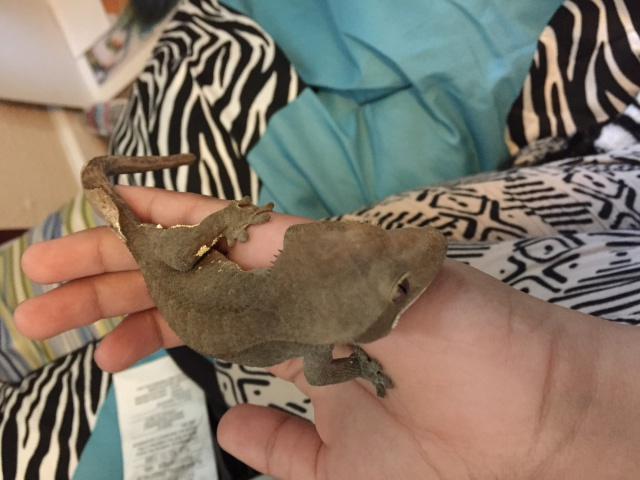 Crested gecko
QuestionHenry Clay on my hand
Henry Clay
Crested gecko
QuestionHenry Clay on my hand
Henry Clay
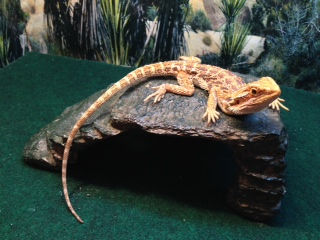 Juvenile Beardie - sudden behavior change
QuestionQUESTION: I am new to Bearded Dragons but have
Juvenile Beardie - sudden behavior change
QuestionQUESTION: I am new to Bearded Dragons but have
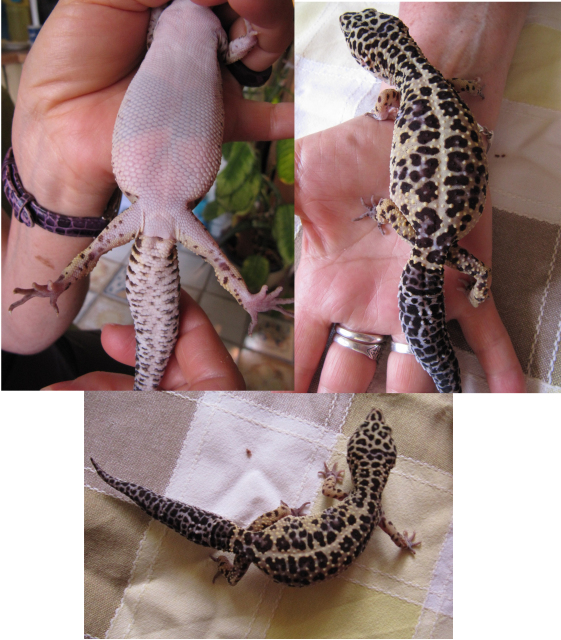 Leopard Geokko ill
QuestionQUESTION: I am having a problem with a female L
Leopard Geokko ill
QuestionQUESTION: I am having a problem with a female L